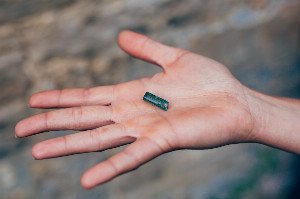Syafi'i Syafi'i, Mukti Ali, Adlan Fauzi Lubid
The Implementation of Merdeka Belajar Curriculum in Islamic Education Learning to Develop Students' Independent Character
Introduction
The implementation of merdeka belajar curriculum in islamic education learning to develop students' independent character . Explore Merdeka Belajar Curriculum implementation in Islamic Education (PAI) to foster independent character. Covers planning, practical learning, and holistic evaluation, noting impact & challenges.
Abstract
Purpose – This study aims to examine the implementation of the Merdeka Belajar Curriculum in Islamic Education (PAI) learning, covering the aspects of planning, implementation, and evaluation, as well as how this curriculum contributes to shaping students' independent character at SMP Sumpah Pemuda Jakarta Barat. Methodology/approach –The research employs a qualitative method with a descriptive approach. Triangulation techniques are applied to ensure the validity of data collected through in-depth interviews with the School Principal, Vice Principal for Curriculum Affairs, PAI teachers, and student representatives, as well as direct classroom observations . Findings – The research findings indicate that the planning of the Merdeka Belajar Curriculum is carried out collaboratively between the school administration and PAI teachers, although challenges remain in understanding the new curriculum. In its implementation, learning focuses more on practical activities rather than theoretical lessons, such as memorizing Quranic verses, which has proven effective in fostering students’ independence. Meanwhile, the evaluation process is conducted holistically, combining written tests, oral assessments, and practical worship evaluations, all of which contribute to strengthening students' independent character. Novelty/value – This study provides new insights by demonstrating that the implementation of the Merdeka Belajar Curriculum in PAI learning has a positive impact on developing students' independent character. However, challenges remain, particularly in teachers' and schools' understanding of the new curriculum. The uniqueness of this research lies in its holistic evaluation approach and its focus on student independence within the context of religious education.
Review
This study offers a timely examination of the implementation of Indonesia's Merdeka Belajar Curriculum within Islamic Education (PAI) learning, specifically at SMP Sumpah Pemuda Jakarta Barat. The authors aim to meticulously dissect the curriculum's application across its planning, implementation, and evaluation phases, assessing its impact on fostering students' independent character. Employing a qualitative descriptive approach, the research effectively utilizes data triangulation through in-depth interviews with key stakeholders—including school leadership, teachers, and students—alongside direct classroom observations. The findings highlight collaborative planning efforts, yet acknowledge challenges in curriculum understanding. Crucially, the study demonstrates that a focus on practical activities, such as Quranic memorization, during implementation is effective in cultivating student independence, supported by a holistic evaluation combining written, oral, and practical assessments. The research makes several significant contributions. Methodologically, the use of triangulation techniques strengthens the validity and reliability of the qualitative data, providing a rich and nuanced understanding of the curriculum's application in a real-world setting. The practical insights derived from the study are particularly valuable; by showing how activity-based learning in PAI directly contributes to the development of independent character, it offers concrete implications for educators and curriculum developers. The described holistic evaluation approach, encompassing various assessment methods, is commendable and appears well-suited for measuring multifaceted character development within a religious education context. This study's focus on student independence within the specific context of Islamic education under the Merdeka Belajar framework also provides novel empirical evidence, enriching the understanding of character education in diverse cultural and educational landscapes. While providing valuable insights, the study also implicitly points to areas for further exploration. The recurring mention of "challenges remaining, particularly in teachers' and schools' understanding of the new curriculum" warrants deeper investigation. Future research could delve into the specific nature of these understanding gaps, their root causes, and effective professional development strategies to overcome them. Given that this is a single-school case study, while providing depth, a broader comparative analysis across different institutions or regions could offer insights into generalizability and context-specific adaptations. Furthermore, while the study establishes a positive impact, exploring the long-term sustainability of independent character development fostered by this curriculum, perhaps through longitudinal studies, would further enhance its value and practical relevance. Nevertheless, this paper serves as an important foundational step in understanding the practical implications of Merdeka Belajar in Islamic education.
Full Text
You need to be logged in to view the full text and Download file of this article - The Implementation of Merdeka Belajar Curriculum in Islamic Education Learning to Develop Students' Independent Character from International Journal of Educational Sciences and Development .
Login to View Full Text And DownloadComments
You need to be logged in to post a comment.
Top Blogs by Rating
Big Data's Unintended Conseque...
By Sciaria
Unseen Engineers: Nanotech's B...
By Sciaria
Phantom Power: Unmasking Your...
By Sciaria
Favorite Blog
Electro: The Art of Engineered...
By Sciaria
The Elusive Self: Is Authentic...
By Sciaria
Beyond Repair Shops: Unlocking...
By Sciaria





